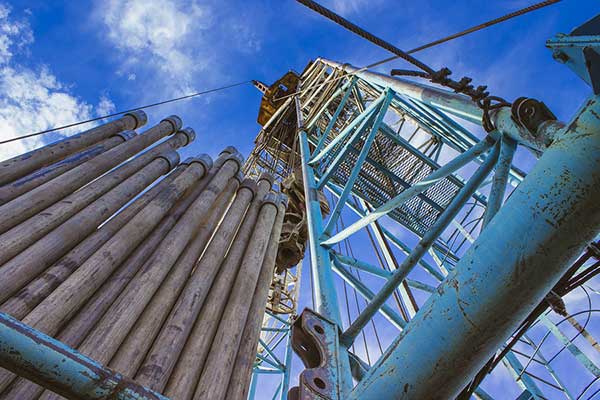The GCC and Iraq’s economies will remain primarily reliant on oil and gas well into the next decade, said a new report by S&P Global Ratings, noting that they must accelerate diversification to counter oil price decline.
With global hydrocarbon demand yet to peak and GCC countries still holding many decades in reserve, their emissions could still rise very significantly compared with 2015 levels – even if they meet their Paris Agreement targets, according to the report titled “The Energy Transition: The Clock Is Ticking For Middle East Hydrocarbon Exporters”.
Key takeaways from the report:
Hydrocarbons contribute an average of 40 per cent to the GDP of the GCC and Iraq, or about 81 per cent of central government revenues. The GCC’s greenhouse gas emissions are among the highest globally at 27.2 tons per capita. The per capita average for the EU and North America is 7.6 tons and 16.3 tons, respectively.
GCC economies have somewhat diversified away from oil since 2012, partly due to lower oil prices. Average central government revenue at end-2018 was 25 per cent below 2012 levels, while non-oil revenues increased by 81 per cent on average. In the private sector, S&P expects the non-oil share in GGC and Iraq’s real GDP to average of 36.8 per cent in 2022, up from 29.2 per cent in 2012.
The GCC is starting to view renewable energy, particularly solar, as a significant diversification opportunity, partly due to the region’s high solar radiation levels and number of sunlight hours. The International Renewable Energy Agency (IRENA) believes that the GCC can reduce both fossil fuel consumption in the power sector by 354 million barrels of oil-equivalent and emissions by 136 million tons of CO2, as well as create over 220,000 new jobs by achieving their renewable deployment targets by 2030,
However, the current pace diversification is insufficient to counter the decline in oil prices. S&P’s hypothetical long-run stress test of oil price declining to below $40 by 2040 suggests that the average rating of a Gulf sovereign could fall by two notches from ‘BBB+’ to ‘BBB-’ (although this is not S&P’s base case scenario).
Even if the GCC meets these targets and reduces domestic fossil fuel consumption, S&P believes that hydrocarbon exports will remain the main funding source for regional investment, which S&P considers in its sovereign ratings. – TradeArabia News Service
Finance & Capital Market
GCC must diversify fast to beat oil decline: S&P

- Similar Stories

MoF launches 'digital public consultation' on R&D tax relief

Fortis secures $20m in Series A funding round

Saudi investment funds' assets surge to $33bn in Q4

ADGM wins 'Most Trusted Financial Centre Brand’ award

Adnic acquires 51% of Allianz Saudi Arabia stake

Emirates Islamic concludes debut $500 million financing facility

SNB Capital closes cross-border insurance M&A deal

GCC insurers’ top-line growth to be 5pc-15pc in 2024: S&P

Dubai Investments shareholders approve 12.5pc dividend

Every dirham lost to fraud in UAE costs firms AED4.19: study

Carbon markets to play ‘critical role in decabonisation’

Sukuk market set to grow; GCC DCM to cross $1 trillion

Tech firm launches digital supply chain financing solution

Lombard Odier appoints Ali Janoudi as Head of New Markets

Mantra launches incubator in Dubai World Trade Centre

GCFC partners with AGII to accelerate green growth in Africa

Spinneys to launch IPO; offers 25% of firm's share

Bain & Company and stc 'top companies': LinkedIn

World Bank raises UAE real GDP growth forecast to 3.9%

AIM Congress 2024 to help drive global investment

SNB Capital’s Rashed Sharif tops Forbes Asset Managers list

NBB names winner of Bahrain luxury villa, cash prizes

IndusInd International to acquire 60pc stake in Invesco India

Saudi bank alrajhi tops Forbes Most Valuable Bank ranking

Valu empowers ESLSCA students with flexible payments solutions

Bahrain's GDP surges 2.4pc in 2023 on non-oil growth: Report

Top GCC insurers' revenue surges 19pc to $32bn in FY2023

DFSA, SFC co-host roundtable for Hong Kong asset managers

Fajr-led bank consortium complete Aster GCC business buy

Roshn teams up with Google Cloud to unlock the power of AI
